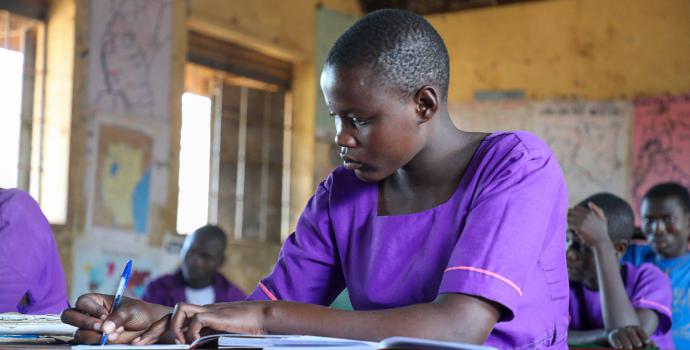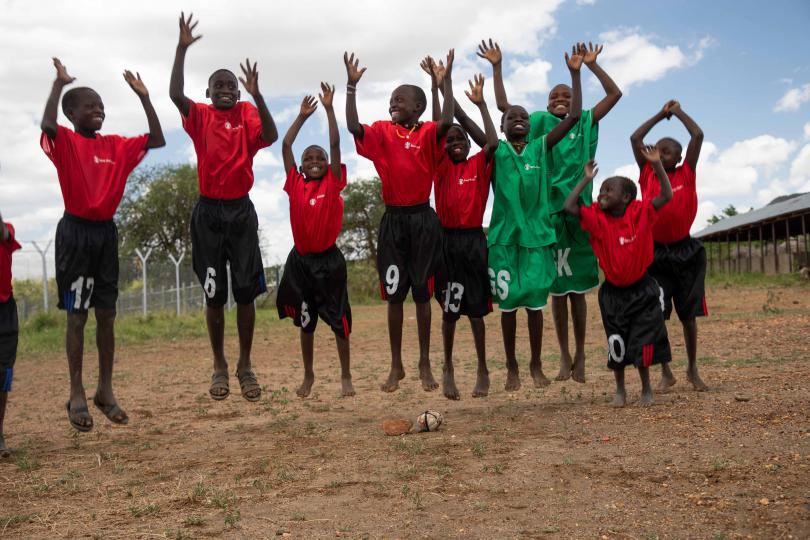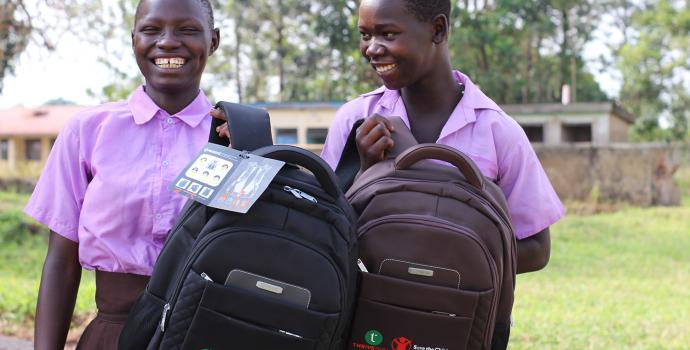Influencing financing for improved learning in Karamoja

By:Winfred Ongom
Schools in Karamoja continue to face barriers to accessing quality education with a low primary completion rate at 24.5%, and a pupil-to-classroom ratio (PCR) of 112: Teachers are tasked to manage overcrowded classrooms, under-resourced schools, and a lack of qualified teachers, contributing to many learners falling behind national benchmarks and continuous contribution to the low primary completion rate.
Through the Leave No One Behind program, communities and local organizations collaborated to ensure girls and boys access quality education. Through community dialogues and joint monitoring with the technical teams, district leadership, and civil society organizations, key issues that were prioritized include lack of teachers in schools, low and late disbursement of capitation grants, dilapidated structures, and lack of meals at school.
As most of these were attributed to insufficient resourcing, Save the Children together with partners trained community volunteers, district technical people, and community-based organizations in the planning and budgeting processes. Informed by the evidence on the resource gaps in schools, priority was given to the capitation grant and the wage bill which were creating the biggest barriers to access to quality education and largely contributing to the low enrollment and completion rates.
Save the Children and the civil society budget advocacy group developed CSO papers which were presented at the technical planning committee meetings, district stakeholder meetings, budget consultative meetings, and budget conferences. At the national level, the team developed advocacy papers in response to the budget framework paper and ministerial statements. These papers were also informed by recommendations from the district and government priorities.
The advocacy papers were presented to the Education Policy Review Committee, the Ministry of Education, and the Education Committee of Parliament and in these policy and budget engagements, the fiscal direction was to influence the increase of the capitation grant and work with respective district education officers to have qualified teachers posted to community schools.
Save the Children further collaborated with partners and District Education Officers, and led media engagement on the need to increase capitation grants. This triggered a public debate on the issue, leading to more attention on the inadequate budget set for the capitation grant. The debates attracted the attention of the National Planning Authority and the Manager, Policy, Research, and Innovation recommended that resources allocated per child, per year be increased from Shs.17,000 to Shs.63,546 during a meeting with the Education Policy Review Committee.

In June 2023, when the budget estimates for the education sub-program were released there was a 30.3% increase in basic and secondary education reflecting an increase of the capitation grant from Shs.17,000 to Shs.20,000 per child in universal primary education effective the financial year 2023/24. The Ministry of Finance also committed to continue working with districts regarding late disbursements of the resources to schools.
The capitation grant is an annual contribution by the government to the education of learners aimed at ensuring all children have continued access to education. At the district level, engagements with the technical planning committee and the district education office led to the posting of qualified teachers to community schools in Karamoja under the wage bill.
The program endline report presented an 18% increment in the enrollment of learners. Community schools that had government teachers registered an improvement in teacher attendance from 45% to 73% which was attributed to increased monitoring following the strengthening of community structures such as the School Management Committees (SMC) and Parents Teachers Association.
Despite progress made, there’s a need for continued engagement of communities and strengthening of accountability platforms for increased advocacy towards coding of community schools to be sustained.




